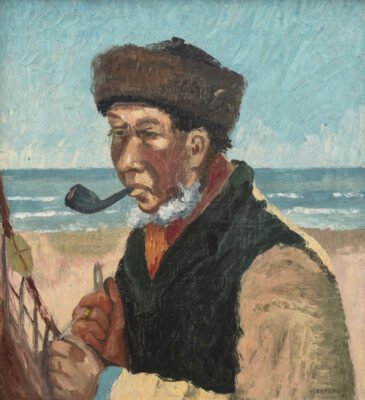There’s an anachronistic beauty to the images in Trouble Every Day, a new book exploring trans identity through paganism, rituals, and Edenic landscapes. For the book’s creator, Eddie Langham, this natural landscape – the images were shot on location in Sydenham Hill Woods – is at the core of the images themselves. Langham says that they wanted to “evoke the natural process of budding, blooming, rotting, and decay in the story of the book, which I think most queer and trans people could relate to in the expression of their own identity.”
‘The Players’, as they’re dubbed in Trouble Every Day, are Puer Deorum, Rae Martins Ashton, and Donna Marcus Duke (whose text, Marsha, Gardens, and Fucking Liberals accompanies photographs by Eerie Rose and Karin Sarkizoba). They seem both at home in this landscape and alien to it, somewhere between the past and our own contemporary moment, a continuation of the cyclical growth, decay, and rebirth of gardens and the natural world.
For Langham – who says that their work is informed by historical fashion – the historical references to the aesthetics and silhouettes of royal courts “represent the idea that trans identity has been here since the beginning of culture yet has been ostracized from art history”. The book is designed to offer an “alternative timeline to our erasure, while centering and celebrating trans and queer people in aesthetic fashions and regalia we wouldn’t have had access to”. This idea is echoed by Rose, who gives credit to the element of fantasy that exists in these images: “If we did have this history, what would it have looked like? What do we want future generations to be able to look back on.”
Trans identity has always had a complex relationship with the past; whether through historical erasure, or the burdens and expectations that trans people might feel now. This tension exists in Fucking Liberals, the accompany text by Donna Marcus Duke, which grapples with the inescapable image of Marsha P. Johnson wearing a flower crown. The essay tries to make sense of what happens when a person becomes an icon; as Duke puts it, “ trans people, our relationship with own materiality and how it’s ascribed by others can often be fraught, which is why I think there is a tendency to find refuge in the spiritual”. Trouble Ever Day is reaching for both the spirituality in material life, and what it means to make spirituality less abstract.
For Langham, these idea are expressed in the relationship that Trouble Every Day has with paganism. They explain, “So many English historical folkloric traditions have a trans energy which sits at odds with our erasure from history.” This also comes through in the images themselves; the flowing gowns and elaborate adornments – veils, armor, hoods – alongside the bucolic background and decaying ruins feel ripped out of folk horror. For Rose, their own queerness is “found in paganism and the occult […] the persecution of something as natural as paganism, one of our oldest forms of spirituality, feels adjacent to the queer experience in many ways.” Langham is poetic about this: “Transitioning and making oneself’s outside align with their inside is in some ways a magical and supernatural experience as it goes against the patriarchal assigned ‘order’ of things.”
“Transitioning and making oneself’s outside align with their inside is in some ways a magical and supernatural experience as it goes against the patriarchal assigned ‘order’ of things” – Eddie Langham
The central metaphors in Trouble Every Day – gardens and the natural world, the material ruins of times gone by – show a refusal to let the images and text simply gesture towards something utopian, instead offering something strange and compelling, even magical, but that you need to surrender yourself to. Community is at the heart of this – those that have been lost, and those yet to come – which Duke makes reference to in their essay, writing, “We wear flowers as a garden, because together we’re divine.” Whether or not this divinity is attainable isn’t made clear, and nor should it be.
The transformational nature of Trouble Every Day – whether in the image of the garden, or the mutability of trans identity – offers a more material kind of freedom than that, something that Rose describes through the language of the garden itself: “Just as flowers come and go, no matter how cold the frost is, come spring they will bloom again – so will queer and trans people. These are flowers that grow through the cracks in paving stones, creep in through the bricks, take root under the foundations of your home. Queerness is as natural as the ancient forests, and older than the stone circles.”






